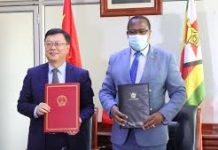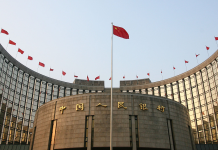BEIJING: China’s visa-free policy for Russian citizens holding ordinary passports is “an extremely kind gesture” and Russia will respond in kind to this friendly act, Russian President Vladimir Putin said in Vladivostok on Thursday, the Xinhua News Agency reported.
Putin was commenting on a Tuesday announcement by a Chinese foreign ministry spokesperson that China will temporarily introduce a visa-free policy for Russian citizens holding ordinary passports, for the period from September 15, 2025 to September 14, 2026, allowing a stay of up to 30 days for purposes such as business travel, tourism, as well as other private visits, exchange visits, or transit, Xinhua said.
Some Russian media also reported the remarks that were made by Putin at the ongoing Eastern Economic Forum in Vladivostok. “Russia would reciprocate this friendly gesture, and we’ll do the same,” Putin said, per RT.
Chen Gang, a Chinese businessman who has been engaged in China-Russia trade for many years and frequently travels between the two countries, told the Global Times that the potential visa-free agreement between China and Russia would greatly facilitate bilateral trade and people-to-people exchanges.
Now working at China-Russia Suifenhe Zhongsu Automobile Import and Export Co., Ltd., he said that previously, one had to pay for an electronic visa, and the application process was quite complicated. “There’s a saying: if you want to get rich, build roads first. Visa-free travel can be likened to paving the way for the economy.”
A Chinese scholar who was attending the forum where Putin made this friendly gesture shared with the Global Times on Friday that when the host mentioned that China had announced a visa-free policy for Russian citizens, Putin was visibly pleased and called it a “pleasant surprise.”
Putin highly praised the decision for its important role in strengthening exchanges and friendship between China and Russia, Wang Xiaoquan, an expert with the Institute of Russian, Eastern European and Central Asian Studies of the Chinese Academy of Social Sciences, who was at the forum, told the Global Times on Friday.
“In my view, Putin’s remarks carry strong symbolic significance and gesture, reflecting his high recognition of China-Russia relations. The next step mainly involves technical implementation,” Wang said, noting that if everything goes smoothly, it could be realized in the near future.
Russia has previously introduced measures such as electronic visas for Chinese citizens, so there should be no major technical obstacles, Wang said.
Positive gesture
China has decided to trial a visa-free policy for Russian citizens holding ordinary passports starting from September 15, 2025 to September 14, 2026, a Chinese foreign ministry spokesperson said on Tuesday.
Following the announcement, searches on several online travel agencies saw a major surge. Data from Qunar showed that within half an hour of the news being released, searches on its platform for flights from Moscow to China nearly doubled year-on-year, with flights from Moscow to Beijing topping the list.
When commenting on Putin’s latest friendly gesture in reciprocating China’s visa-free policy, Xu Xiaolei, a marketing manager at China CYTS Tours Holding Co, told the Global Times on Friday that in this context, inbound and outbound tourism between the two countries is expected to see significant benefits.
“Similar to bilateral goods trade, tourism flows are projected to experience double-digit growth in the next two to three years before reaching a peak and then stabilizing for a period,” Xu said.
In a written interview on the eve of his visit to China to attend the Shanghai Cooperation Organization (SCO) Tianjin Summit and China’s V-Day commemorations in Beijing, Putin noted that large-scale bilateral cultural and people-to-people initiatives make a significant contribution to fostering friendly relations, Xinhua said.
“Tourism is another important sphere I would like to note. The figures here are encouraging: in 2024, mutual tourist flows had increased by 1.5 times, reaching 2.8 million trips,” he said, per Xinhua.
Chinese tourists visiting Russia are likely to focus on the Far East, central regions, and the Moscow-St. Petersburg corridor, Xu said, adding for travelers, however, trips to Russia’s traditional European regions may see lower actual arrivals given the ongoing prolonged conflict.
For Russian visitors to China, beyond traditional destinations such as Beijing, Shanghai, Sanya, Guangzhou, and Harbin, there will likely be greater exploration of culturally distinctive cities like Zhangjiajie, Chengdu, and Hangzhou, Xu noted.
Data from major online travel agency Trip.com show that during the recently concluded summer travel season, Russia ranked among the top five source markets for inbound tourism to China, the Global Times learned.
Since July, inbound travel bookings from Russia on the Trip.com platform have surged by 150 percent year-on-year. –The Daily Mail-Global Times news exchange item






